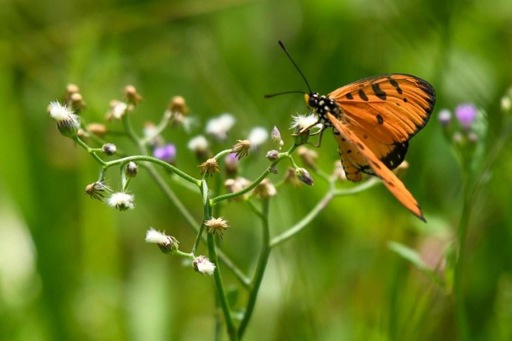At the rate it is progressing, global warming could lead to the disappearance of butterflies, the Catholic University of Louvain noted in a press release on Thursday, based on new research findings.
Using climate modelling, UCLouvain Professor Caroline Nieberding, supported by her team, and Bertanne Visser (ULiège), found that the higher temperatures predicted for 2100 will lead to the hatching of butterflies that are not adapted to the various seasons.
This will result in a change in sexual preferences: females will prefer males that provide them with less fertility.
This discovery has two major implications. On the one hand, global warming risks eliminating the butterflies' ability to choose the right partner and thus to reproduce optimally, which could accelerate the extinction of the species.
On the other hand, and by extension, insects are capable of very complex learning and are therefore not robots capable only of innate, instinctive behaviour, as was imagined until recently. The initiation of an insect’s sexual preferences can adapt to the partners available in its social environment or to climatic conditions, for example.
This observation has been published in the 'Functional Ecology' scientific journal. The author, Caroline Nieberding, is studying the behaviour of butterflies through a continuous breeding programme in UCLouvain’s sustainable insectarium.

